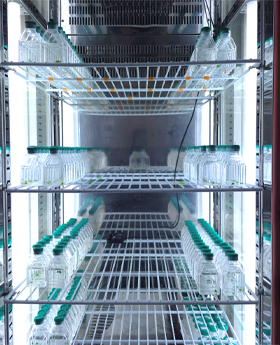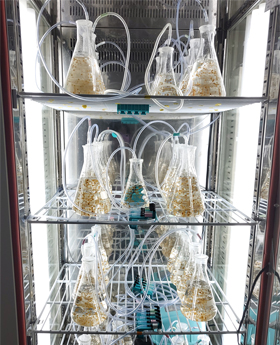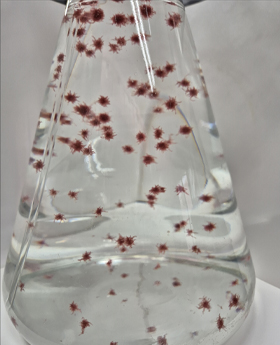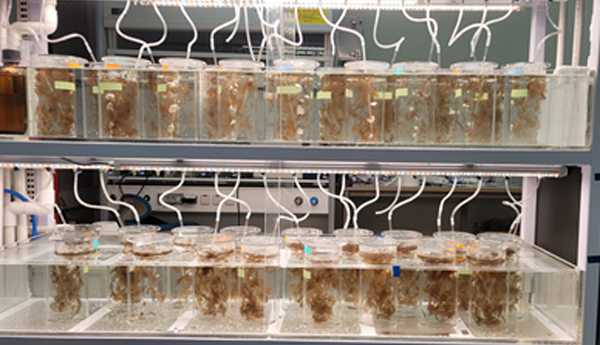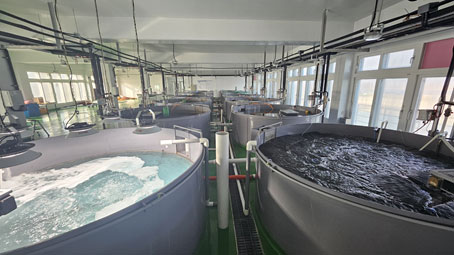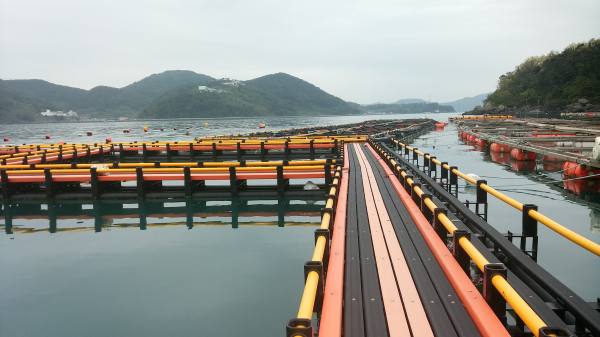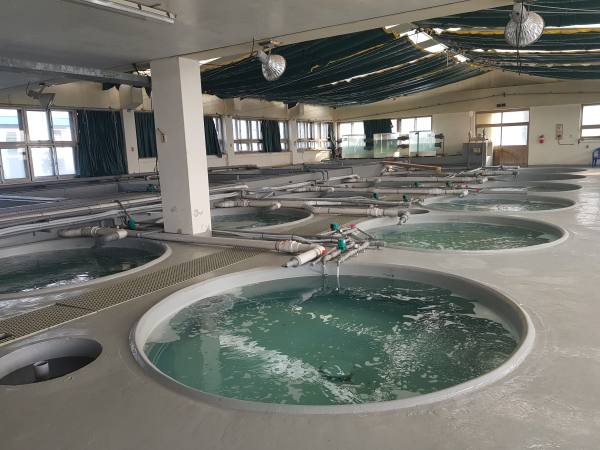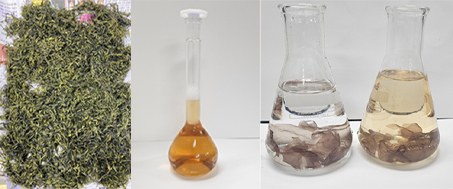Integrated Multi-Trophic Aquaculture (IMTA)
Integrated multi-trophic aquaculture (IMTA) is an environmentally friendly aquaculture technology, consisting of fed- and extractive-aquaculture components in one system, therefore reducing environmental stresses in the local environment.
The MEGA Lab designs land-based IMTA systems and conducts research projects with partner institutions in Korea, the Americas, Europe and Asia.
